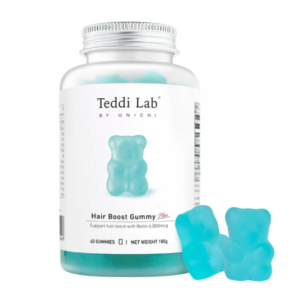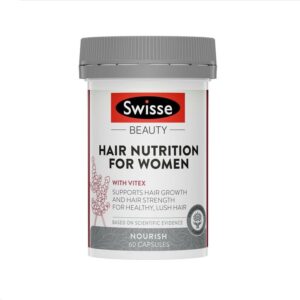
Red bean water for edema? Understanding the main causes of oedema
Many people find their face looks puffy when they wake up in the morning, and their overall appearance seems more bloated than usual. To improve this, many people try drinking red bean water or increasing massage.Reduce edemaHowever, if you experience frequent edema, or even a significant increase in weight in a short period of time, it may not be simply temporary edema, but rather a warning sign of some underlying medical conditions that warrants further attention.
What is edema?
Edema refers to the accumulation of excess fluid in the body. This fluid does not circulate normally in the blood vessels or lymphatic system, but instead stagnates in the interstitial spaces under the skin, causing localized swelling. The most common sites include the face, hands, ankles, and lower legs, with the lower limbs being particularly noticeable. Edema areas feel soft to the touch and often do not immediately spring back after being pressed, appearing inelastic.
Edema primarily arises from an imbalance in the body's fluid metabolism and distribution. When the circulation of blood and lymph is abnormal, this condition is more likely to occur. Therefore, any problem in an organ that affects blood circulation could be a potential cause of edema.
Common causes of edema
I. Short-term edema caused by poor lifestyle habits
- Excessive salt intake: A high-salt diet can easily lead to increased blood pressure, cause the body to retain water, and thus cause edema.
- Prolonged static postures: such as sitting at a desk or standing for long periods of time, can lead to...blood circulationThe flow is obstructed, causing liquid to accumulate.
- Lack of exercise: Insufficient exercise can affect blood flow back to the heart, causing fluid to easily remain in the limbs.
- Nutritional imbalance:VitaminsInsufficient mineral intake, especially electrolyte imbalance, can also easily lead to edema.
II. Edema caused by bodily dysfunction
- Hormonal fluctuations: For example, women are prone to edema before menstruation due to increased progesterone levels.
- Poor metabolism: A slowed metabolism can affect the body's normal water metabolism.
- Malnutrition: A lack of essential nutrients can also cause abnormal water metabolism.
- Altitude sickness: In high-altitude areas, due to the thin air, the body may experience edema.
- Drug side effects: Some drugs, such as antihypertensive drugs and hormone drugs, may cause edema as a side effect.
III. Edema caused by disease
- Kidney-related diseases, such as nephritis and kidney failure, can affect the excretion of water and salt from the body if kidney function is impaired.
- Cardiovascular diseases, such as heart failure and high blood pressure, can obstruct blood return, causing edema in the lower limbs or throughout the body.
- Liver diseases such as cirrhosis, liver cancer, or acute hepatitis can impair liver function, affecting protein production and leading to fluid imbalance.
- Lymphatic system disorders, such as cancer and inflammation of the lymphatic vessels, can obstruct the return of lymph fluid.
- Hypothyroidism: This type of edema usually does not leave a pit after pressing, and is a relatively special type.
- Psychological factors, such as long-term anxiety and depression, may also affect the autonomic nervous system and indirectly lead to edema.
- Venous-related problems, such as phlebitis or venous valve insufficiency, can affect blood return from the lower limbs.
Common symptoms of edema
- When you press on the skin, it feels soft and lacks elasticity, similar to pressing on a sponge.
- The body feels heavy and the movements are sluggish.
- I feel tired easily.
- Weight increased significantly in a short period of time.
Treatment methods for edema
Temporary edema can usually be improved by adjusting one's diet, such as consuming foods with diuretic effects, or supplementing with appropriate amounts of vitamins and minerals. However, if the edema is caused by an underlying medical condition, it often indicates that the condition has progressed to a more serious stage, and it is recommended to seek professional medical assistance promptly.
Since edema is caused by different reasons, the treatment methods vary. For example, kidney problems require priority treatment of kidney function, while heart diseases require treatment of the heart. The medications used for different diseases are also different. Therefore, you should never take diuretics or other medications on your own, so as not to worsen your condition.
If you find that you have edema, it is recommended that you first visit a family doctor, nephrologist, or cardiologist to have the doctor assess whether it is a kidney or heart problem, and if necessary, refer you to the relevant specialist for further examination.
What foods help reduce water retention?
For temporary edema, consuming foods with diuretic properties can indeed help the body eliminate excess water, thus reducing swelling. However, if the edema is caused by an underlying medical condition, especially for those with impaired kidney function, improper intake may have the opposite effect. For example, high-potassium foods may place an even greater burden on kidney patients.
Recommended diuretic foods:
- Vegetables: winter melon, loofah, cucumber, white radish, asparagus, celery, kelp, etc.
- Fruits: watermelon, cantaloupe, honeydew melon, citrus fruits, lemon, grapes, etc.
- Whole grains: red beans, mung beans, Job's tears, black beans, etc.
- Other foods such as coffee, tea, cola, chocolate, and beer also have a mild diuretic effect.
Foods rich in potassium help balance sodium levels in the body and reduce water retention, but those with poor kidney function should consume them with caution.
- Carbohydrates: taro, potato, sweet potato, yam, pumpkin, brown rice, germ rice, oatmeal, etc.
- Nuts: almonds, walnuts, hazelnuts, peanuts, etc.
- Vegetables: tomatoes, spinach, enoki mushrooms, water spinach, seaweed, amaranth, sweet potato leaves, green beans, etc.
- Fruits: bananas, kiwis, peaches, cantaloupes, custard apples, durians, etc.
Daily prevention and health care suggestions for edema
- Reduce salt intake: Avoid eating foods that are too salty or heavily seasoned, such as pickled products and canned foods.
- Maintain adequate hydration: Sufficient water intake helps promote metabolism and detoxification.
- Daily moderate exercise: Avoid prolonged sitting or standing; moderate activity helps blood circulation.
- Leg elevation and massage before bed: Elevating your legs while resting at night helps blood flow back to the heart, and gentle massage can further relieve swelling.
- Choose loose-fitting clothing: Avoid wearing clothes that are too tight to reduce pressure on the limbs and help with blood and lymph circulation.
Related Post:
Related Products:
-
Unichi – Teddi Lab® Gummy Bears Gummy Bears for Hair Growth Upgraded Sea Salt and Green Titanium Flavour 60 Capsules
Original price was: $170.00.$125.00Current price is: $125.00. Add to basket -
ProVen – Women's Dedicated Probiotic + Cranberry 3600 30 Capsules
Original price was: $198.00.$138.00Current price is: $138.00. Add to basket -
[Clearance Sale Price] Swisse – Beauty Collagen Hair Care, Skin Care, and Nail Care Tablets (60 tablets)
Original price was: $78.00.$28.00Current price: $28.00. Add to basket -
Swisse – Beauty Women's Hair Nutritional Capsules 60 Capsules
Original price was: $168.00.$118.00Current price is: $118.00. Add to basket






































































